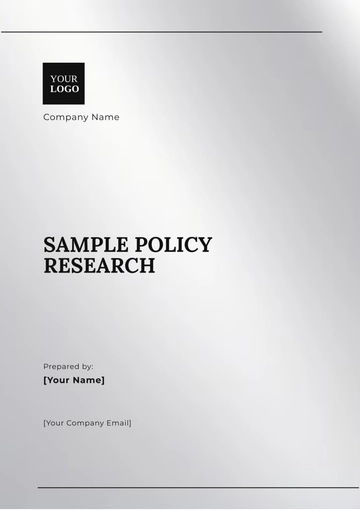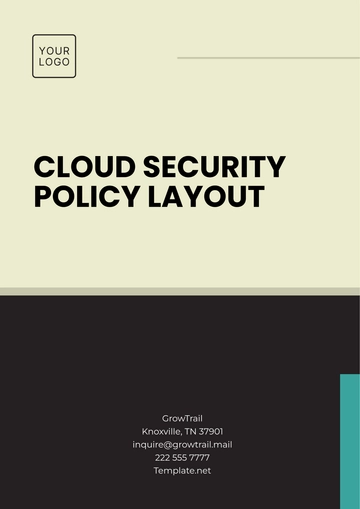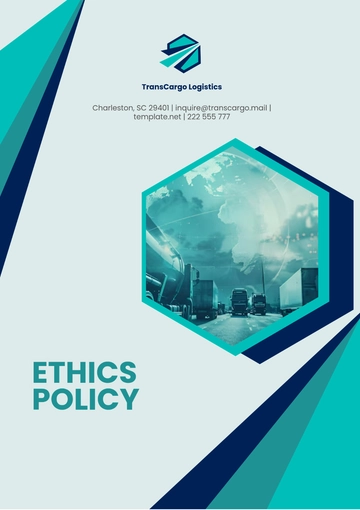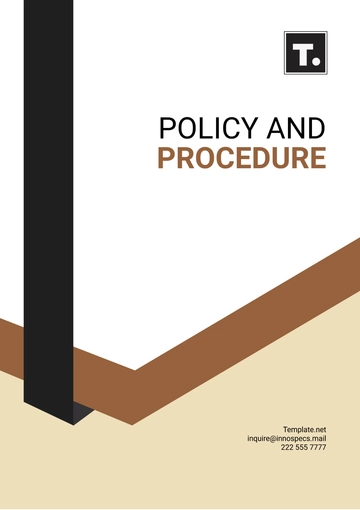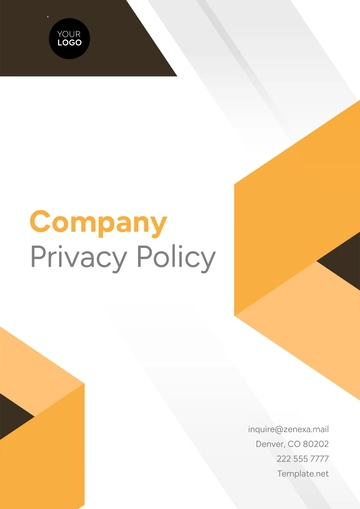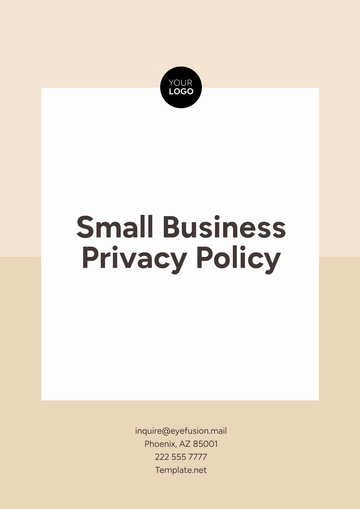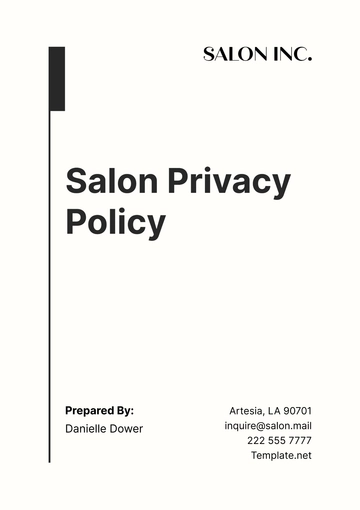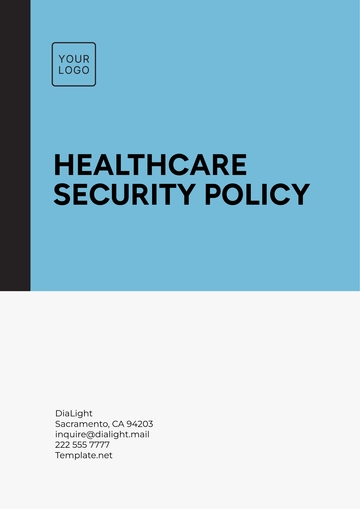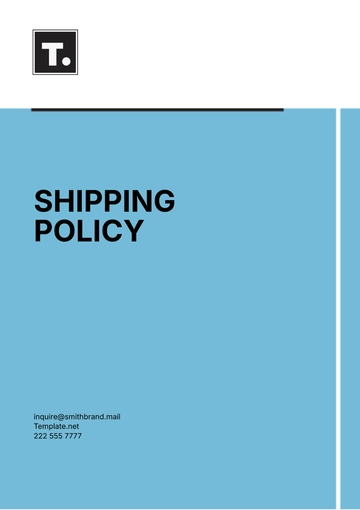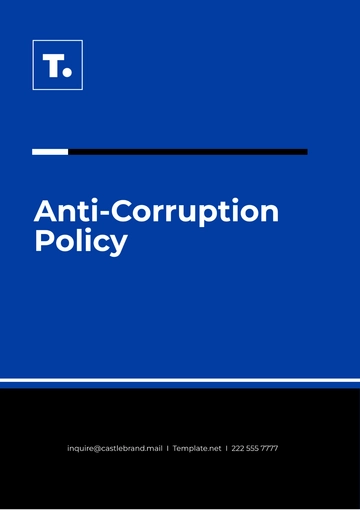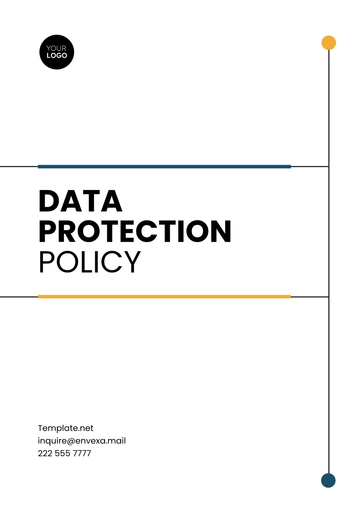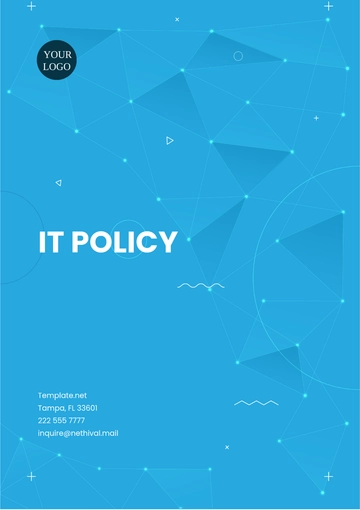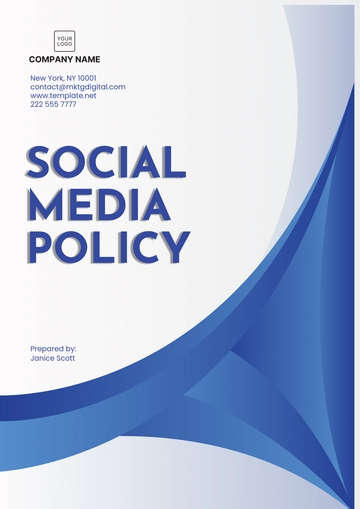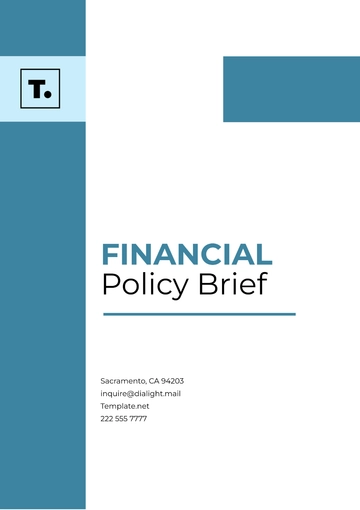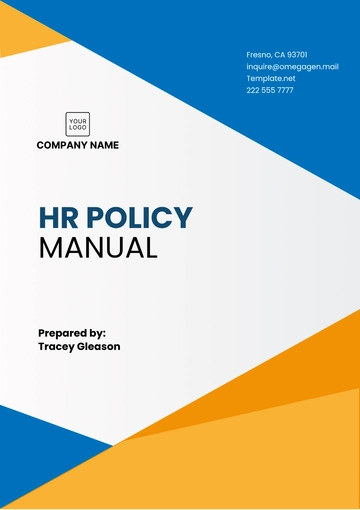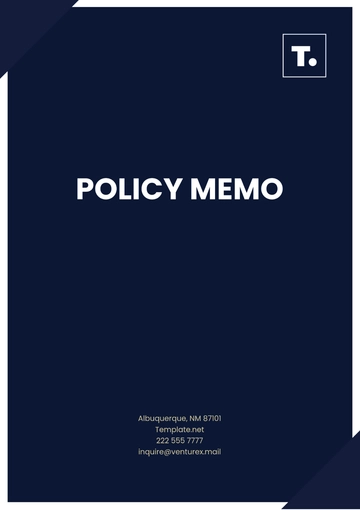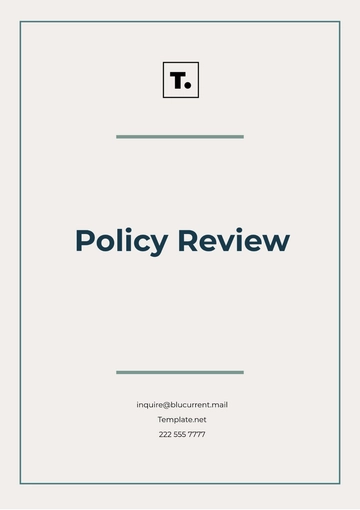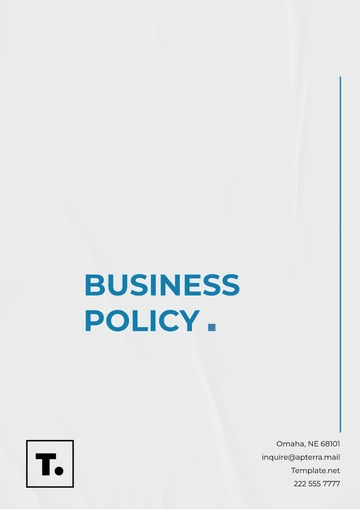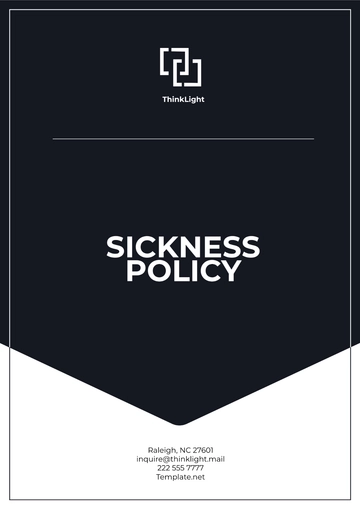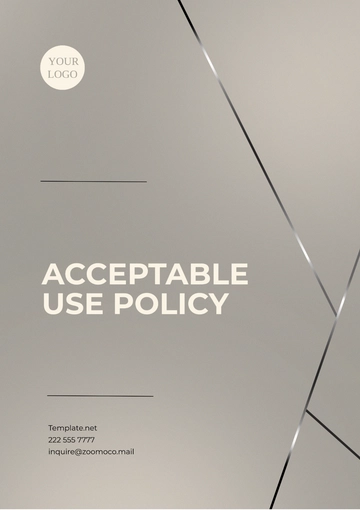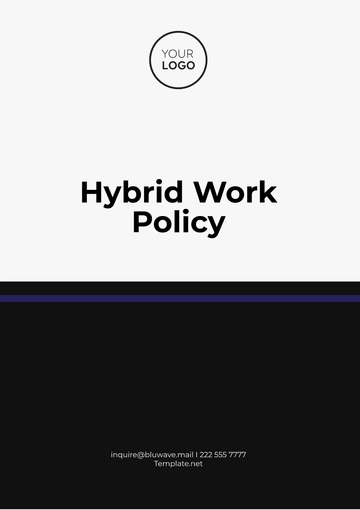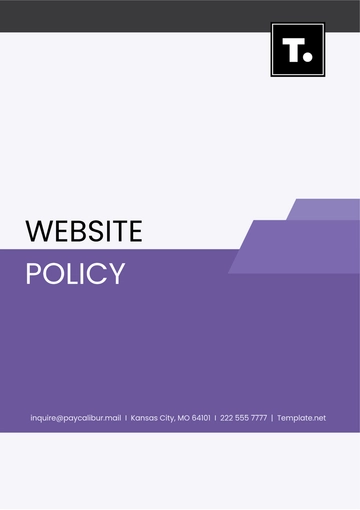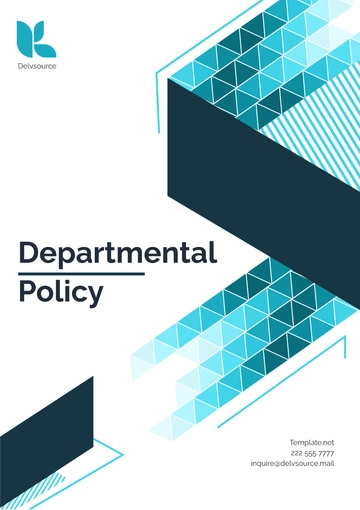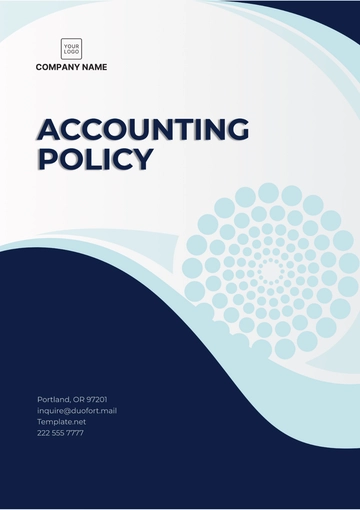Free Cleaning Services Leadership Ethics Policy
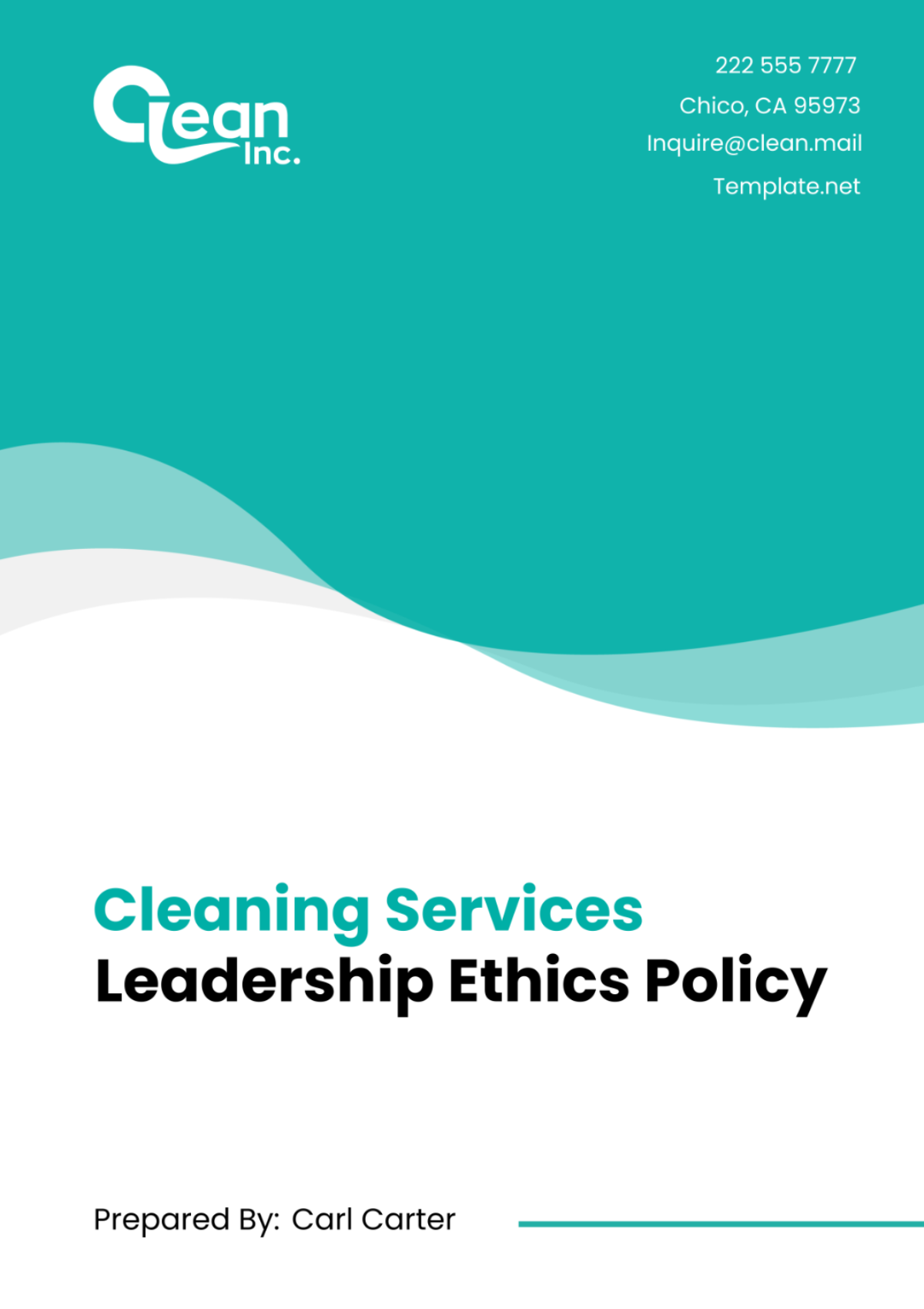
I. Introduction
At [Your Company Name], we are dedicated to upholding the highest standards of integrity, professionalism, and ethical conduct in all aspects of our business. Our Leadership Ethics Policy serves as a guiding framework for all leaders within the company to ensure that our operations are guided by principles of honesty, respect, and responsibility.
II. Integrity
We commit to conducting all business activities honestly, transparently, and ethically. We expect all leaders to uphold the highest standards of honesty, transparency, and ethical behavior in every aspect of their duties.
Honesty and Transparency: Leaders must communicate truthfully and transparently in all business dealings. They should provide accurate information to clients, employees, and stakeholders, avoiding misleading statements or misrepresentations.
Conflict of Interest: Leaders are required to identify and disclose any potential conflicts of interest that may arise between their personal interests and the interests of the company or its clients. They should refrain from engaging in activities that may compromise their objectivity or impartiality.
Ethical Decision-Making: Leaders should approach decision-making with integrity and ethical considerations. They should consider the potential impact of their decisions on all stakeholders and choose courses of action that align with the company's values and principles.
Accountability: Leaders are accountable for their actions and decisions. They should take responsibility for any mistakes or errors, and work towards rectifying them in a transparent and ethical manner.
III. Respect
Respect forms the foundation of our interactions at [Your Company Name]. We value the dignity and worth of every individual, regardless of their role or background, and we foster an environment of inclusivity and equality.
Diversity and Inclusion: We celebrate diversity and recognize the unique contributions that individuals from different backgrounds bring to our team. We strive to create an inclusive workplace where everyone feels valued, respected, and empowered to contribute their best.
Open Communication: We encourage open and respectful communication among all team members. Leaders should actively listen to the perspectives and ideas of others, fostering an environment where everyone feels heard and understood.
Professionalism: We expect all leaders to conduct themselves with professionalism and courtesy in their interactions with colleagues, clients, and stakeholders. This includes treating others with kindness, empathy, and patience, even in challenging situations.
Conflict Resolution: In the event of conflicts or disagreements, leaders should seek to resolve them peacefully and respectfully. We promote constructive dialogue and collaboration to find mutually beneficial solutions that uphold the dignity and rights of all parties involved.
Recognition and Appreciation: We believe in recognizing and appreciating the contributions of our team members. Leaders should acknowledge the efforts and achievements of others, fostering a culture of gratitude and mutual respect.
Zero Tolerance for Discrimination or Harassment: We have zero tolerance for discrimination, harassment, or any form of disrespectful behavior. Leaders must uphold our anti-discrimination and anti-harassment policies and take appropriate action to address any violations promptly and effectively.
IV. Compliance
We adhere to all applicable laws, regulations, and industry standards governing the cleaning services industry. We expect all leaders to demonstrate a strong commitment to upholding legal and ethical standards in every aspect of their roles.
Legal Compliance: Leaders must ensure that all business activities and operations comply with relevant local, national, and international laws and regulations. This includes but is not limited to labor laws, health and safety regulations, environmental regulations, and data protection laws.
Regulatory Adherence: In addition to legal requirements, leaders are responsible for adhering to industry-specific regulations and standards applicable to the cleaning services sector. This includes following guidelines set forth by regulatory bodies and industry associations to ensure the delivery of safe, effective, and ethical cleaning services.
Documentation and Record-Keeping: Leaders must maintain accurate and up-to-date documentation and records to demonstrate compliance with applicable laws and regulations. This includes maintaining records related to employee training, safety protocols, equipment maintenance, and any certifications or licenses required for conducting business.
Risk Management: Leaders should proactively identify potential compliance risks and take appropriate measures to mitigate them. This includes conducting regular risk assessments, implementing controls and procedures to address identified risks, and ensuring that employees are adequately trained to understand and adhere to compliance requirements.
Ethical Standards: While legal compliance is essential, leaders are also expected to uphold high ethical standards in their decision-making and conduct. This includes acting with integrity, honesty, and fairness in all business dealings, even in situations where the law may not explicitly dictate a course of action.
Training and Education: Leaders should ensure that employees receive adequate training and education on relevant laws, regulations, and ethical standards that apply to their roles. This may include conducting regular training sessions, providing resources and materials for self-study, and promoting a culture of compliance awareness throughout the organization.
Reporting and Non-Retaliation: Leaders should establish clear channels for employees to report potential compliance violations or concerns without fear of retaliation. They must take reports of misconduct seriously, investigate them thoroughly, and take appropriate corrective action as necessary.
V. Fair Treatment
At [Your Company Name], we are dedicated to providing fair and equitable treatment to all individuals within our organization. We believe in fostering an environment where every employee is valued, respected, and given equal opportunities for growth and development.
Equal Employment Opportunities: We are committed to providing equal employment opportunities to all employees and applicants without regard to race, color, religion, gender, sexual orientation, gender identity or expression, national origin, age, disability, marital status, or any other protected characteristic. Recruitment, hiring, promotion, and other employment-related decisions are made based on qualifications, skills, and job performance.
Merit-Based Rewards and Recognition: We recognize and reward employees based on their merit, performance, and contributions to the success of the company. Performance evaluations, promotions, and salary adjustments are conducted fairly and transparently, with consideration given to individual achievements and abilities.
Safe and Respectful Workplace: We are committed to providing a safe and respectful workplace free from harassment, discrimination, intimidation, or any form of mistreatment. Leaders must foster a culture of respect, professionalism, and inclusivity, ensuring that all employees feel valued and supported in their roles.
Work-Life Balance: We understand the importance of maintaining a healthy work-life balance and encourage employees to prioritize their well-being and personal commitments. Leaders should support flexible work arrangements when possible and accommodate reasonable requests for time off or schedule adjustments to help employees achieve balance in their professional and personal lives.
Professional Development Opportunities: We provide opportunities for professional development and career advancement to all employees, regardless of their background or position within the company. Leaders should actively support employees' career goals and aspirations, providing guidance, mentorship, and resources to help them succeed in their roles and advance their careers.
Employee Grievance Procedure: We have established a formal grievance procedure for addressing concerns or complaints related to unfair treatment, discrimination, harassment, or other workplace issues. Leaders must take all grievances seriously, investigate them promptly and impartially, and take appropriate corrective action to address any violations of company policies or standards.
VI. Confidentiality
We respect the confidentiality of sensitive information, including client data, employee records, and proprietary business information. We take all necessary measures to safeguard this information from unauthorized disclosure. Leaders are entrusted with access to various types of confidential information, and it is essential that they handle this information with the utmost care and discretion.
Client Confidentiality: Leaders must respect the confidentiality of all client information, including but not limited to contracts, agreements, business strategies, and proprietary data. They should only disclose such information to authorized individuals within the company on a need-to-know basis and refrain from sharing it with external parties without proper authorization.
Employee Confidentiality: Leaders have access to confidential employee information, including personnel records, performance evaluations, and disciplinary actions. They are responsible for safeguarding this information and ensuring that it is only accessed and used for legitimate business purposes. Any unauthorized disclosure of employee information is strictly prohibited.
Trade Secrets and Intellectual Property: Leaders must protect the company's trade secrets, intellectual property, and proprietary information from unauthorized disclosure or misuse. This includes confidential business processes, product designs, technology innovations, and other proprietary assets that give the company a competitive advantage in the marketplace.
Data Security: Leaders should ensure that appropriate measures are in place to secure confidential information from unauthorized access, theft, or loss. This may include implementing access controls, encryption, password protection, and secure data storage systems to safeguard sensitive data from cyber threats and security breaches.
Non-Disclosure Agreements: Leaders may be required to enter into non-disclosure agreements (NDAs) with clients, vendors, or partners to protect confidential information shared during the course of business transactions or collaborations. They must abide by the terms of these agreements and ensure that all parties involved understand their obligations regarding confidentiality.
Training and Awareness: Leaders should provide ongoing training and awareness programs to employees to educate them about the importance of confidentiality and the proper handling of sensitive information. This includes raising awareness about common risks and threats to confidentiality, such as phishing scams, social engineering attacks, and insider threats.
Consequences of Breach: Leaders must understand the potential consequences of breaching confidentiality, including legal liabilities, financial penalties, damage to the company's reputation, and loss of trust from clients and stakeholders. They should take breaches of confidentiality seriously and take prompt corrective action to mitigate any adverse effects.
VII. Environmental Responsibility
We recognize the importance of environmental stewardship and are committed to minimizing our environmental impact in all aspects of our operations. Leaders play a crucial role in promoting environmentally sustainable practices within our company and fostering a culture of environmental responsibility among our employees.
Resource Conservation: Leaders are responsible for implementing measures to conserve natural resources such as water, energy, and raw materials in our cleaning processes. This may include using eco-friendly cleaning products, optimizing equipment usage to minimize waste, and adopting efficient cleaning techniques that reduce resource consumption.
Waste Reduction and Recycling: Leaders should encourage waste reduction and recycling initiatives within our company to minimize the amount of waste sent to landfills. This may involve implementing recycling programs for paper, plastic, glass, and other recyclable materials, as well as composting organic waste where feasible.
Hazardous Waste Management: Leaders must ensure proper handling, storage, and disposal of hazardous materials and waste generated during cleaning operations. This includes complying with regulations governing the use and disposal of hazardous chemicals, ensuring employees are trained in safe handling practices, and partnering with certified waste disposal services to responsibly dispose of hazardous waste.
Emissions Reduction: Leaders should explore opportunities to reduce greenhouse gas emissions and air pollutants associated with our operations. This may involve transitioning to low-emission vehicles for transportation, optimizing routes to minimize fuel consumption, and adopting eco-friendly technologies and equipment that reduce emissions.
Environmental Compliance: Leaders are responsible for ensuring that our company complies with all applicable environmental laws, regulations, and standards. This includes staying informed about environmental requirements relevant to our industry, conducting regular environmental assessments to identify areas for improvement, and implementing corrective actions to address any non-compliance issues.
Sustainable Procurement Practices: Leaders should prioritize the procurement of environmentally sustainable products and services from suppliers who share our commitment to environmental responsibility. This may involve sourcing eco-friendly cleaning supplies, equipment, and materials that are certified as environmentally preferable or made from renewable resources.
Community Engagement and Education: Leaders should actively engage with our local communities to raise awareness about environmental issues and promote sustainable practices. This may include participating in community clean-up events, sponsoring environmental education programs, and sharing best practices for reducing environmental impact with our clients and stakeholders.
VIII. Customer Satisfaction
We prioritize the satisfaction of our clients and strive to exceed their expectations with every service we provide. Leaders play a pivotal role in ensuring that our clients receive exceptional service and that their needs and preferences are met to the fullest extent.
Understanding Client Needs: Leaders should actively engage with clients to understand their unique needs, preferences, and expectations regarding our cleaning services. This may involve conducting regular meetings, surveys, or feedback sessions to gather insights and identify areas for improvement.
Quality Service Delivery: Leaders are responsible for ensuring that our cleaning services consistently meet or exceed the highest standards of quality and excellence. This includes implementing rigorous quality control measures, conducting regular inspections, and addressing any issues or deficiencies promptly and effectively.
Responsive Communication: Leaders should maintain open and transparent communication channels with clients to address any inquiries, concerns, or requests in a timely and responsive manner. This may involve providing clear and accurate information, proactively updating clients on the status of their requests, and resolving any issues with professionalism and courtesy.
Continuous Improvement: Leaders must foster a culture of continuous improvement within our company, where every team member is committed to enhancing the quality of our services and the overall customer experience. This may involve soliciting feedback from clients, analyzing performance data, and implementing process improvements and innovations to enhance efficiency and effectiveness.
Personalized Service: Leaders should encourage a personalized approach to service delivery, where we tailor our cleaning solutions to meet the specific needs and preferences of each client. This may involve customizing cleaning schedules, adjusting service levels, or incorporating special requests to ensure that our clients receive a personalized and satisfactory experience.
Proactive Problem-Solving: Leaders should empower employees to proactively identify and address potential issues or challenges before they escalate into larger problems. This may involve providing training and resources to help employees resolve issues independently, empowering them to make decisions in the best interest of our clients.
Feedback and Follow-Up: Leaders should actively seek feedback from clients on their satisfaction with our services and use this feedback to drive continuous improvement. This may involve conducting post-service surveys, follow-up calls, or satisfaction assessments to gather insights and identify areas for enhancement.
IX. Conclusion
At [Your Company Name], our Leadership Ethics Policy serves as a guiding beacon, ensuring that integrity, respect, compliance, fair treatment, confidentiality, environmental responsibility, and customer satisfaction are at the forefront of all our operations. By upholding these principles, our leaders foster a culture of excellence, trust, and accountability, laying the foundation for the continued success and sustainability of our company. We are committed to promoting ethical leadership at every level and to making a positive impact on our employees, clients, communities, and the environment we serve.
Date of Adoption: [Adoption Date]
Last Revised: [Revised Date]
- 100% Customizable, free editor
- Access 1 Million+ Templates, photo’s & graphics
- Download or share as a template
- Click and replace photos, graphics, text, backgrounds
- Resize, crop, AI write & more
- Access advanced editor
Instill a culture of integrity in your cleaning services team with Template.net's Leadership Ethics Policy Template. Editable in our AI Editor Tool, this customizable template outlines clear guidelines for ethical conduct and decision-making among leadership. Foster trust, accountability, and professionalism within your organization effortlessly. Elevate your ethical standards with this user-friendly template!
You may also like
- HR Policy
- Restaurant Policy
- Company Policy
- Accounting Policies and Procedures
- Website Policy
- Privacy Policy
- Safety Policy
- School Policy
- IT and Software Policy
- Law Firm Policy
- Construction Policy
- Interior Design Policy
- Travel Agency Policy
- Education Academic Policy
- Security Policy
- Real Estate Policy
- Expense Policy
- Software Policy
